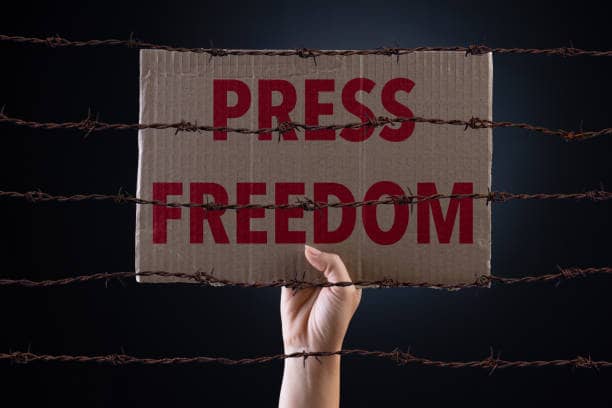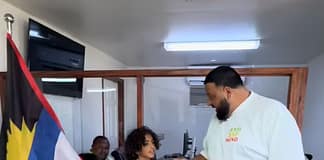
OECS Faces Press Freedom Challenges Amid Editorial Censorship and Political Influence
Antigua and Barbuda and The Organisation of Eastern Caribbean States (OECS) is grappling with maintaining a robust press freedom record amidst growing concerns of editorial censorship and political interference across its member nations.
The World Press Freedom Index was released Friday by the Paris-based Reporters Without Borders (RSF).
RSF gave the sub-regional grouping total points of 62.83, jumping from the 93rd position last year to 68.
Media Landscape
One of the critical issues facing the region’s media landscape is the significant ownership stakes held by political parties in media entities.
This ownership dynamic has raised questions about journalistic independence, with governments exerting notable influence over various media platforms.
Notable examples include radio stations, newspapers, and online outlets like The Grenada Explorer.
Additionally, the emergence of political bloggers has added to the complexity, challenging traditional media norms and practices.
Political Context
During election cycles, the nexus between media and politics becomes particularly pronounced. Elected officials often wield their power by controlling state advertising, a crucial source of revenue for many media organizations.
This financial leverage can lead to editorial biases and self-censorship.
A recent example in Grenada illustrates this trend, where a worker’s protest against the general manager of Grenada’s Broadcasting Network was allegedly covered up in 2018.
Moreover, incidents like barring reporters from covering official ceremonies, as witnessed in Grenada’s cabinet swearing-in ceremony in January 2024, further highlight transparency issues.
Legal Framework
The legal environment in some OECS nations has raised concerns about press freedom. For instance, Saint Vincent and the Grenadines introduced a cybercrime law in 2016, ostensibly aimed at curbing online defamation but often seen as a tool for restricting free expression.
This law, coupled with existing defamation laws that impose imprisonment for media-related offenses, adds to the challenges faced by journalists and media professionals.
Economic Challenges
While the news industry has seen economic growth, journalists continue to struggle with low salaries and inadequate training, leading to high turnover rates.
This issue disproportionately affects women in the region, with many media professionals still earning pre-pandemic wages as of 2023.
Sociocultural Perceptions
Unlike in some other regions, journalism is not widely viewed as a prestigious or lucrative career path in the OECS countries.
This perception contributes to challenges in attracting and retaining skilled journalists.
Safety Concerns
The safety of journalists remains a critical issue, highlighted by the tragic death of Nation News photojournalist Christoff Griffith in Barbados in June 2020. While journalists generally work without major safety concerns, there have been instances of threats and intimidation, particularly from criminal elements and political supporters targeting online media practitioners.
The OECS faces a complex set of challenges in upholding press freedom, ranging from economic and legal barriers to socio-political dynamics.
Addressing these issues will require concerted efforts from governments, media organizations, and civil society to ensure a free and vibrant media environment in the region.
Advertise with the mоѕt vіѕіtеd nеwѕ ѕіtе іn Antigua!
We offer fully customizable and flexible digital marketing packages.
Contact us at [email protected]

















It’s not only in Grenada 🇬🇩 that political biases are perceived.
Don’t forget that the ABLP’S tax funded ABS have been trumpeting their one-sided views for far too long now; and they should have been brought to the attention of the regions watchdog media authorities ages ago.
One of main reasons the ABLP have held on to power for so long.
More media balance is required immediately here.
Meanwhile LIEserver busy dictating their guest with iron fist. Poor ANDERSON CARTY….Dave haffu do wah 🐍 and Miss Knight say.
Darren Matthew Ward and Kieron already exposed LIEserver Radio for being a HOSTILE, DICTATORSHIP Workplace. Darren made several complaints to “management” about a certain piggy 🐷 face hormonal vagabond bullying him at Observer.
Gemma Handy refused to report on the 26 ACRES and 1 PUPA TREE for her boss.
Mr.Hurst got banned
Kadeem Joseph would rather work for the colonials than stay in that TOXIC Observer Radio station
There is no freedom in journalism here in the Caribbean, they all have to side with the American media, they have to speak pro American, they can’t speak against israhell or america backing of genocide.
Comments are closed.